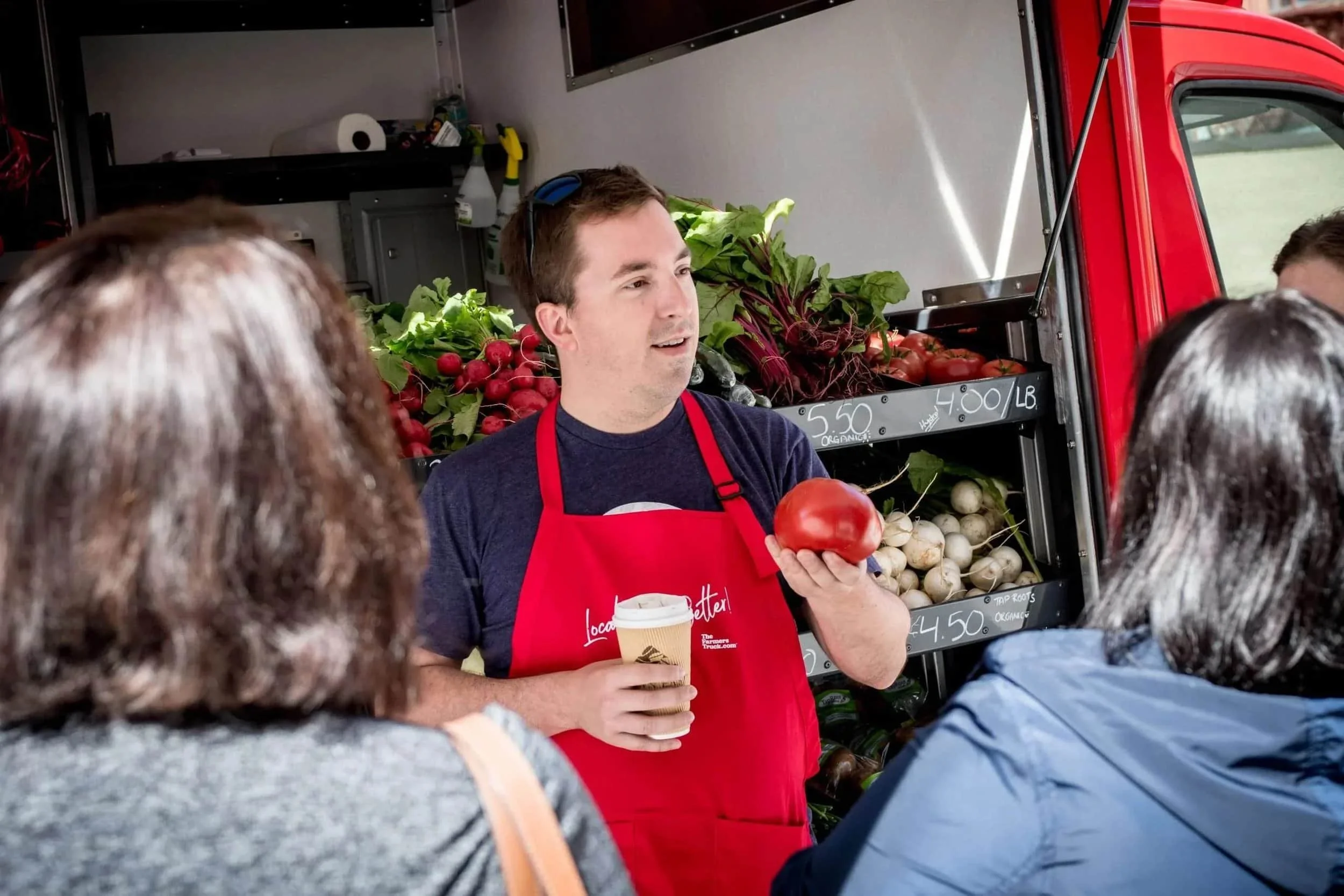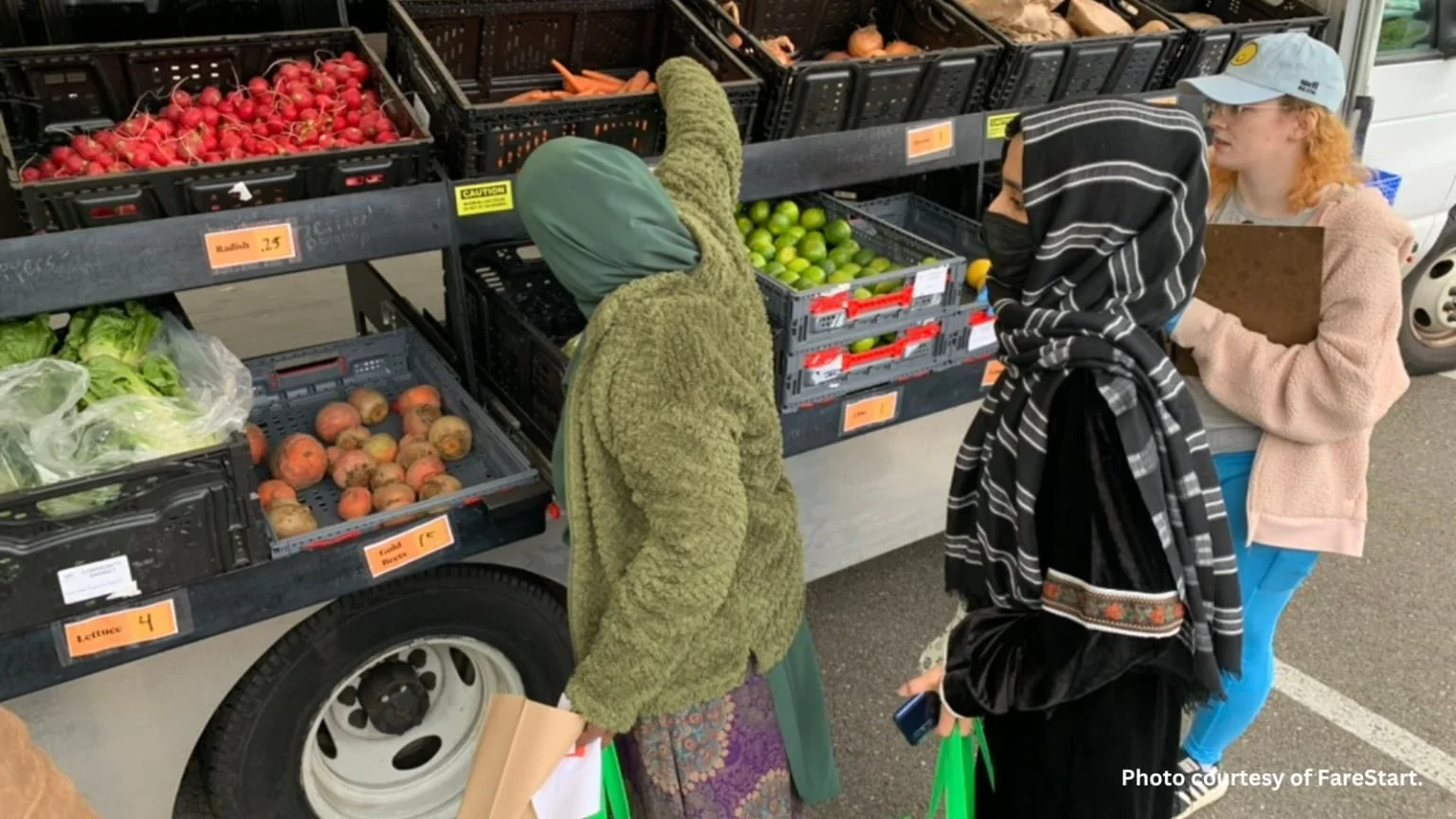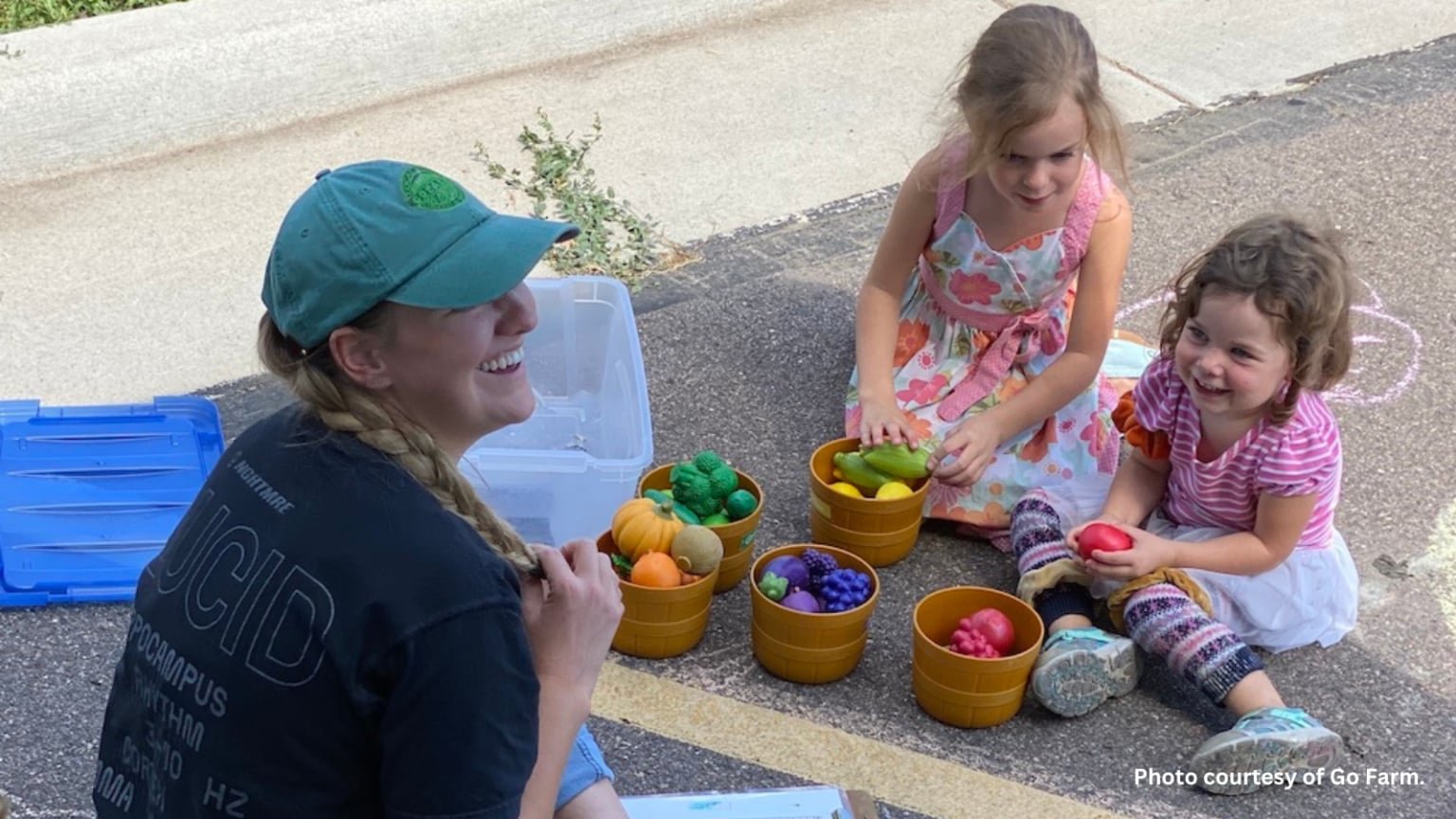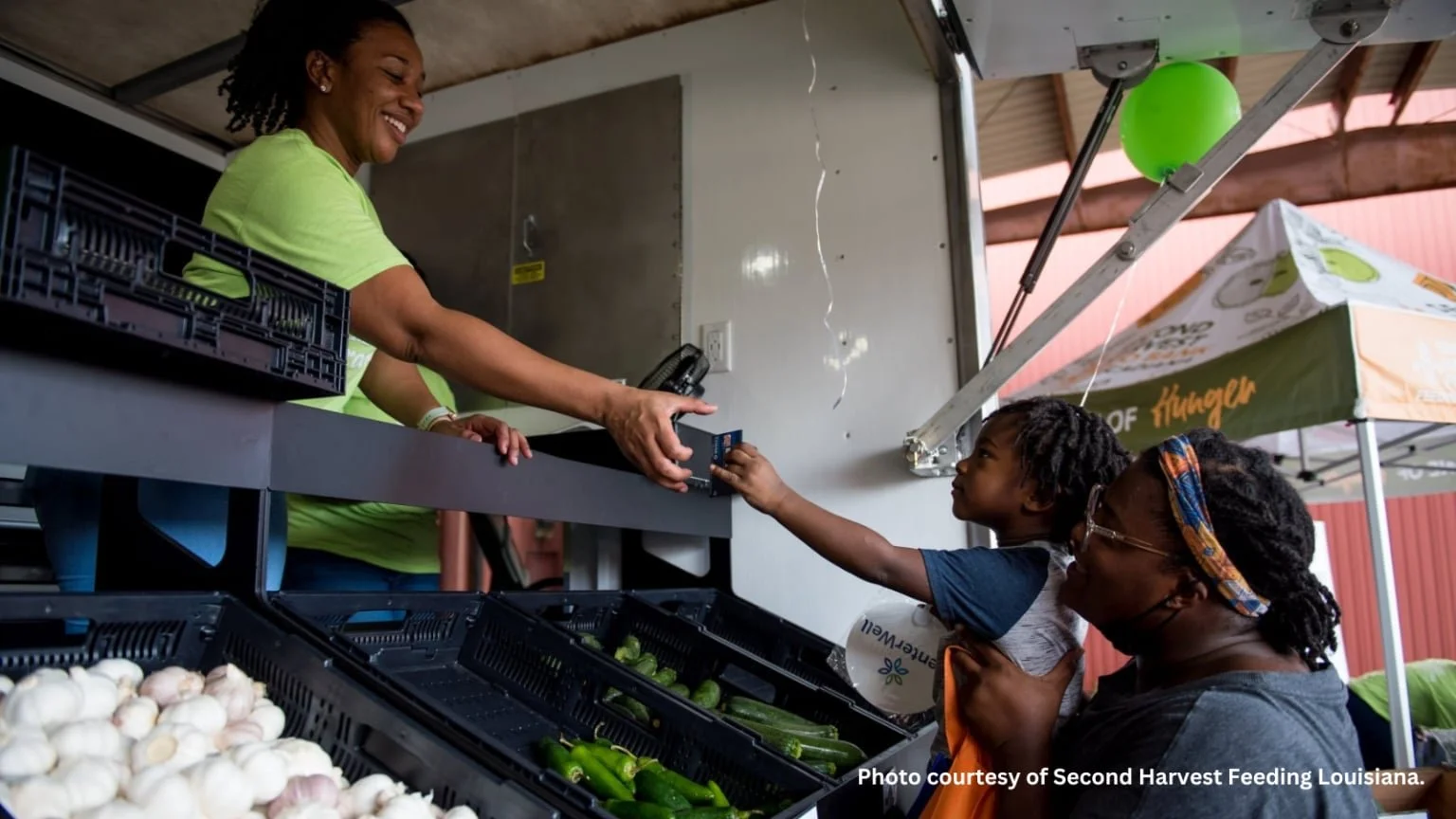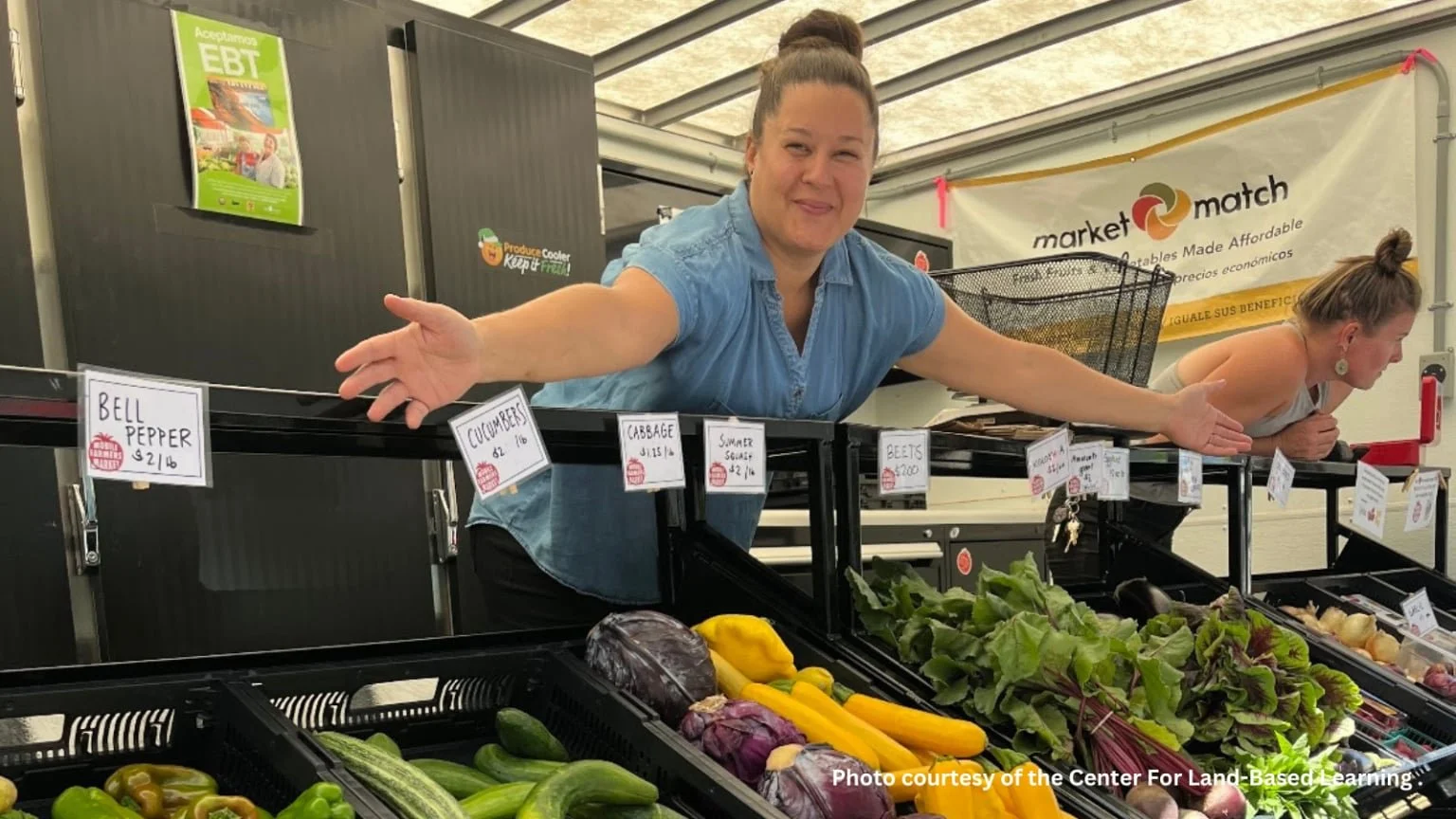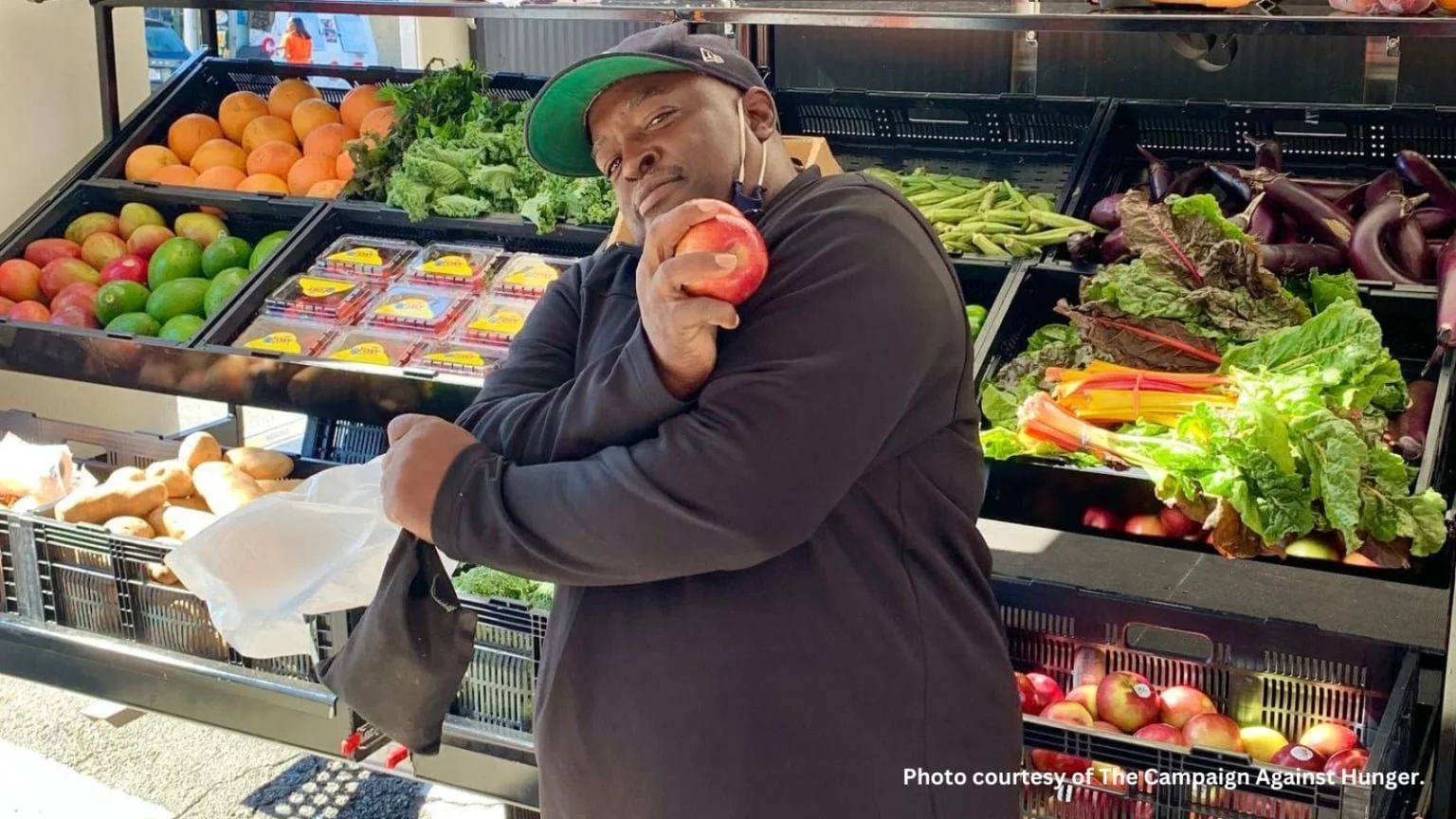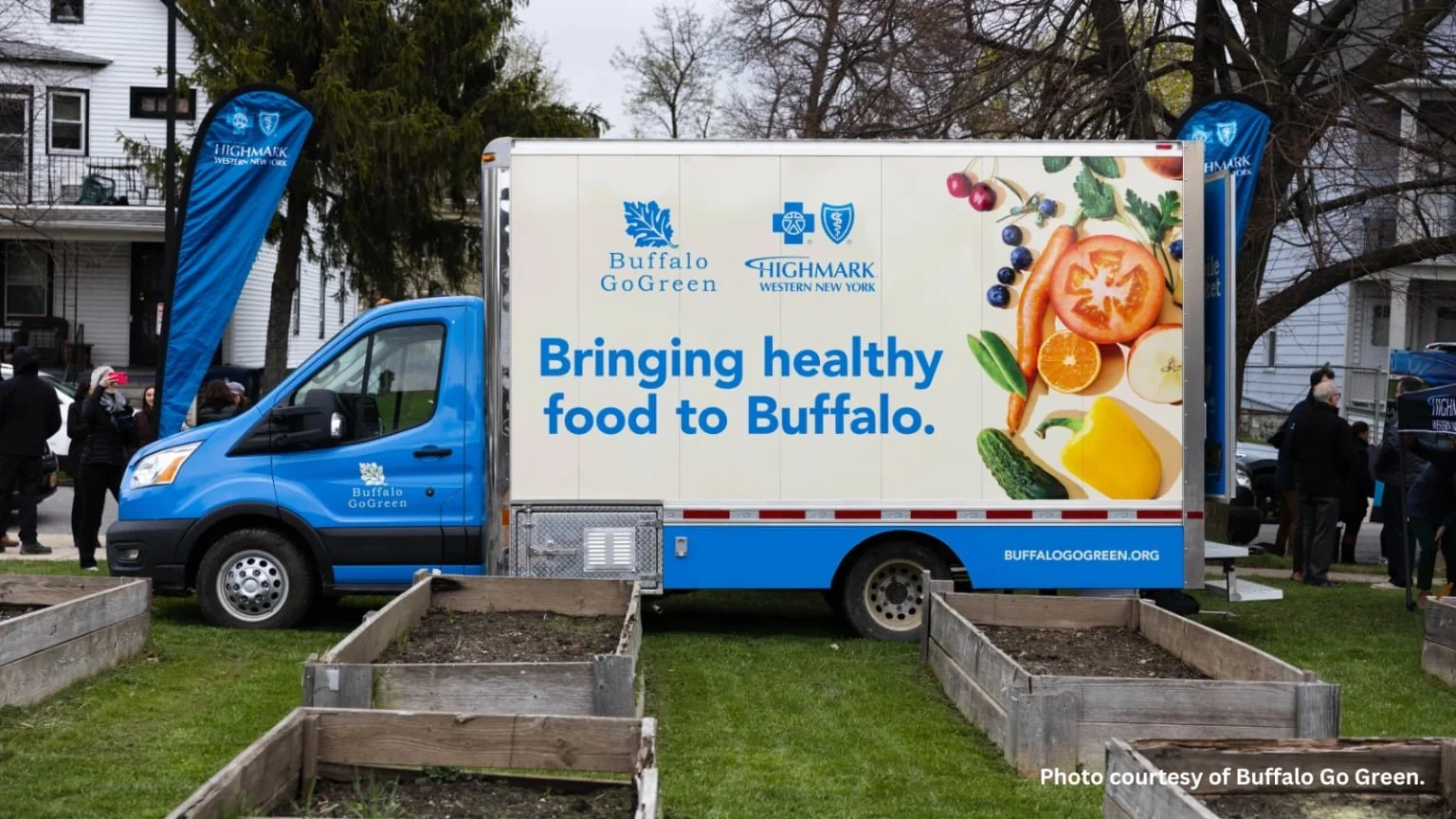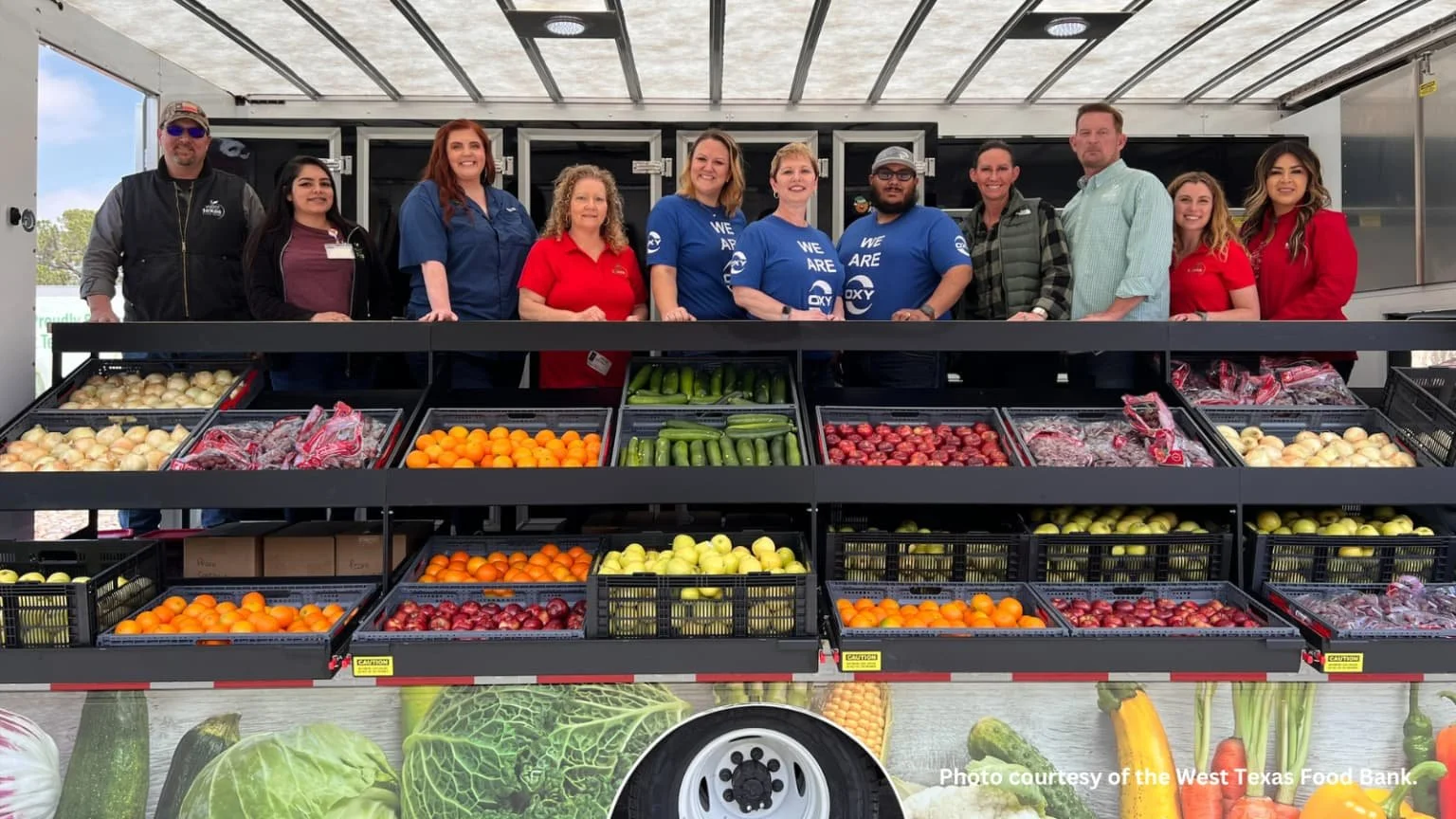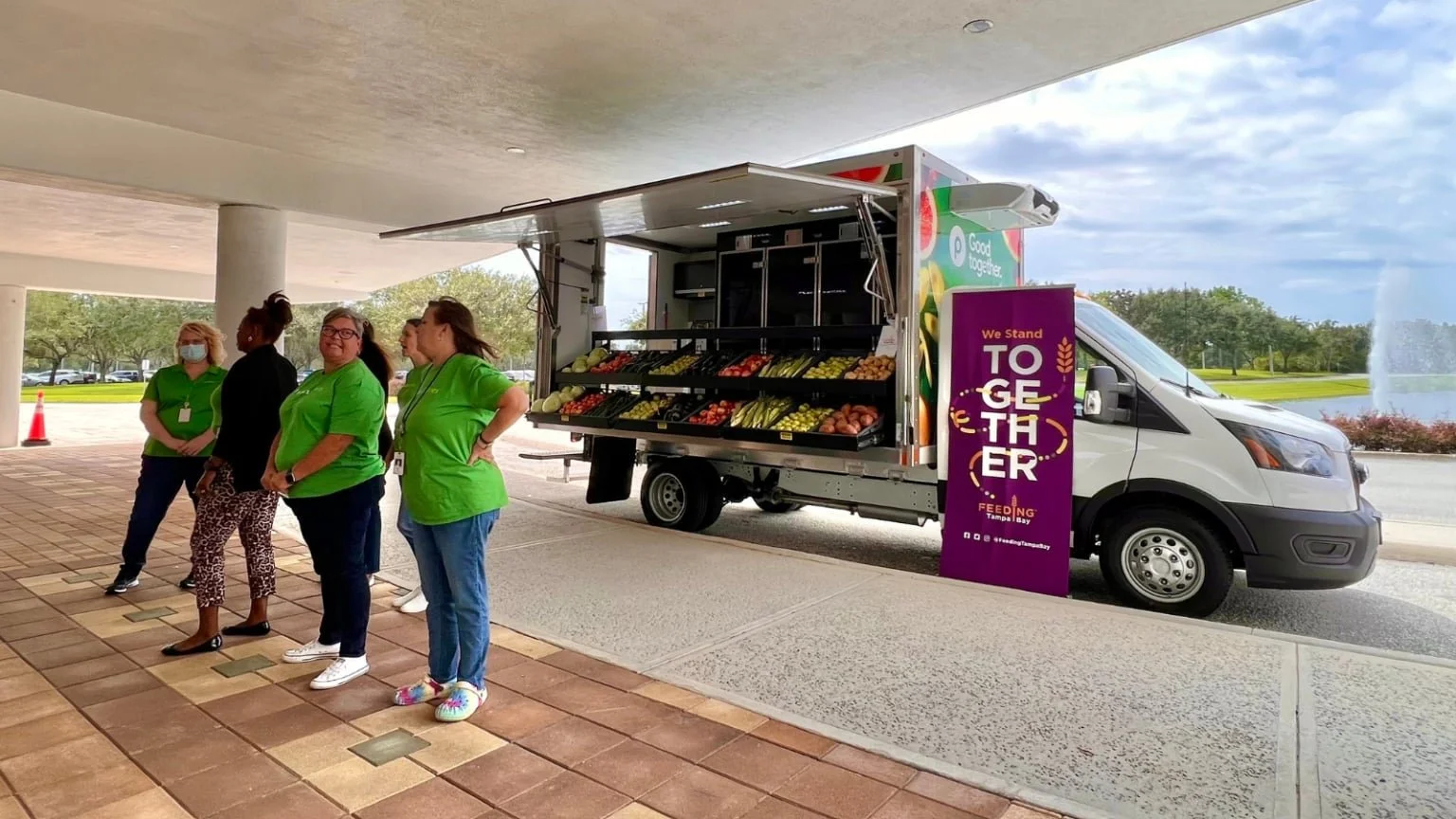Fueling Your Mission: How to Secure Mobile Market Funding
We know creating and sustaining a mobile produce market program is a big undertaking that requires a lot of planning, support, and most importantly - funding!
Having worked with hundreds of programs across North America, we know acquiring funding for a mobile market program is a common hurdle to overcome. With this in mind, here are a few points to help with your funding and grant applications.
What Should I Highlight?
1. Addressing Food Insecurity
Highlight Community Need: Emphasize the specific food deserts or underserved communities the mobile market will serve, citing statistics about food insecurity in these areas.
Access to Fresh Produce: Explain how the mobile market will provide fresh, healthy, and affordable food options to low-income or isolated populations, reducing reliance on convenience stores or fast food.
2. Improving Public Health
Nutritional Impact: Discuss how improved access to fruits and vegetables can reduce diet-related diseases such as obesity, diabetes, and heart disease.
Long-term Benefits: Explain the potential long-term public health benefits, such as lower healthcare costs and healthier communities.
3. Supporting Local Economies
Promoting Local Agriculture: Highlight partnerships with local farmers and small-scale food producers. Mobile markets provide an outlet for local, sustainable agriculture, keeping money within the community.
Job Creation: Mention potential job creation from running a mobile market, including drivers, staff, and supporting roles.
4. Building Community Resilience
Educational Opportunities: Propose how the mobile market could offer cooking classes, nutrition education, or workshops on food literacy, helping the community make healthier food choices.
Partnerships with Social Services: Show potential collaborations with food banks, schools, hospitals, and community centers, leveraging the mobile market to expand their services.
5. Environmental Sustainability
Reduced Carbon Footprint: Discuss the potential for the mobile market to minimize food miles by sourcing locally and delivering food in a fuel-efficient manner.
Waste Reduction: If applicable, mention plans to reduce food waste by sourcing surplus produce or rescuing food that would otherwise go unused.
6. Innovative, Scalable Solutions
Scalability and Sustainability: Demonstrate how the mobile market model can be scaled to serve more communities over time. Include details about funding plans, community support, and partnerships that ensure long-term sustainability.
Technology Integration: Highlight the use of technology for route optimization, mobile payments, or ordering platforms, making the program more efficient and accessible to users.
7. Alignment with Funder’s Goals
Mission Alignment: Align the project’s objectives with the potential funder's mission. For example, emphasize health, food security, poverty alleviation, or environmental sustainability based on the grant's focus areas.
Measurable Impact: Provide examples of how you will track success and outcomes, such as the number of people served, pounds of food distributed, or improvements in community health indicators.
8. Addressing Equity and Inclusion
Reaching Vulnerable Populations: Explain how the mobile market will prioritize marginalized communities, such as seniors, people with disabilities, and ethnic minorities who face the greatest barriers to food access.
Community Input: Emphasize how the program will involve community members in planning and decision-making to ensure the market meets their needs.
9. Program Adaptability and Resilience
Adaptable to Crisis Situations: Highlight the ability of the mobile market to continue operations during emergencies such as pandemics or natural disasters. This ensures uninterrupted access to healthy food for vulnerable populations.
10. Strong Partnerships and Collaborations
Strategic Partnerships: Describe existing partnerships with local governments, healthcare providers, nonprofit organizations, and educational institutions to demonstrate strong collaborative networks.
Leverage Additional Funding: Indicate how the grant will help secure other sources of funding, creating a multiplier effect by attracting investments from other partners or matching funds.
Why a Farmers’ Truck?
Here are some highlights to emphasize why The Farmers' Truck vehicle is an excellent choice for a mobile market:
1. Purpose-Built for Mobile Markets
Designed for Fresh Produce: Farmers' Truck vehicles are specifically designed to store, transport, and display fresh produce in a way that ensures optimal quality and shelf life. The layout and refrigeration capabilities keep food fresh for longer periods.
Customizable Interiors: Vehicles offer customizable configurations to suit different needs, from produce displays to dry goods and refrigerated sections, allowing flexibility in product offerings.
2. Ready-to-Use Turnkey Solution
Fully Equipped Vehicles: Farmers' Truck vehicles come fully equipped and ready to go, reducing the time needed to launch a mobile market. This turnkey solution eliminates the need for custom builds, saving significant time and effort in starting operations.
Streamlined Operations: The vehicles are optimized for smooth operations, including easy access for customers, organized displays, and user-friendly equipment for staff. This helps reduce operational challenges and increases efficiency.
3. Proven Track Record
Success Stories: The Farmers' Truck has a proven track record, with numerous organizations across North America using our vehicles successfully to run mobile markets. Check out the rest of our blog section for testimonials from our fantastic partners!
Trusted by Organizations: The Farmers' Truck is trusted by nonprofits, food banks, farmers, health organizations, and more! This provides additional credibility when applying for grants and seeking funding.
4. Community Engagement Features
Visibility and Branding: The truck’s design allows for attractive, eye-catching branding that can be customized to reflect the mission and identity of the mobile market, boosting community engagement and increasing awareness of the program.
Outreach Capabilities: The mobile market trucks can serve as platforms for more than just food sales—they can be hubs for educational programming, nutrition workshops, and community events, making them multi-functional assets in outreach efforts.
5. Environmentally Conscious Design
Energy-Efficient Vehicles: Farmers' Truck vehicles are designed to be fuel-efficient, minimizing environmental impact while ensuring mobility to reach distant or underserved areas.
Sustainable Refrigeration: With energy-efficient refrigeration systems, the trucks ensure that fresh produce is preserved without unnecessary energy waste, aligning with funders’ goals related to sustainability and reducing the carbon footprint.
6. Cost-Effective for Long-Term Operations
Lower Operational Costs: Compared to building or converting a standard vehicle, Farmers' Truck mobile markets offer a cost-effective solution with lower upfront costs and reduced maintenance needs.
Durability and Reliability: Built to last, these vehicles are durable and reliable, reducing downtime and repairs, which helps keep operational costs low over the long term.
7. Scalability and Growth Potential
Scalable Fleet Options: The Farmers' Truck provides a range of vehicle sizes and models, allowing for scalability as the mobile market expands to serve more communities or regions. As demand grows, your program can easily add more vehicles!
Data-Driven Insights: Farmers' Truck vehicles are designed to integrate with modern data collection tools, which can help in scaling the program and optimizing routes for maximum impact.
8. Adaptable to Various Community Needs
Flexible Service Model: The vehicles can adapt to various community needs, whether the focus is on fresh produce, pantry staples, or culturally appropriate foods, ensuring that the mobile market can meet the specific dietary needs of different populations.
Rural and Urban Accessibility: Farmers' Truck vehicles are designed to navigate both urban and rural environments, making them versatile for reaching diverse communities, from dense city areas to remote rural locations.
9. Ongoing Support and Training
Comprehensive Training: The Farmers' Truck team provides comprehensive training and support, including how to operate the vehicle, marketing mobile market programs, financial models, and a Community Learning Platform! This helps ensure that operators can launch and sustain their programs with confidence.
Customer Success Team: Dedicated support from The Farmers' Truck team is available to assist with any operational challenges, ensuring that the mobile market remains functional and successful.
10. Data and Impact Reporting Tools
Impact Tracking: The Farmers' Truck vehicles can accommodate tools to help organizations track their impact, including the number of customers served, sales volume, and geographic reach. These metrics are invaluable for reporting to funders and showcasing the program's success.
These points make it clear why The Farmers' Truck is a top choice for mobile markets, offering a robust, ready-to-use, and scalable solution that aligns with the goals of community impact, sustainability, and operational efficiency.
Need More Help?
If you’re not able to apply for funding yourself, we’d love to help! The Farmers' Truck offers grant writing services to help organizations secure funding for mobile market programs. With our expertise in the mobile produce market industry and our proven track record of helping nonprofits, community organizations, and food access programs thrive, we are uniquely positioned to craft compelling, funder-aligned grant applications.
We're here to help you navigate the grant process with ease, securing the support needed to drive your mobile market's success! Contact our team to learn more!

